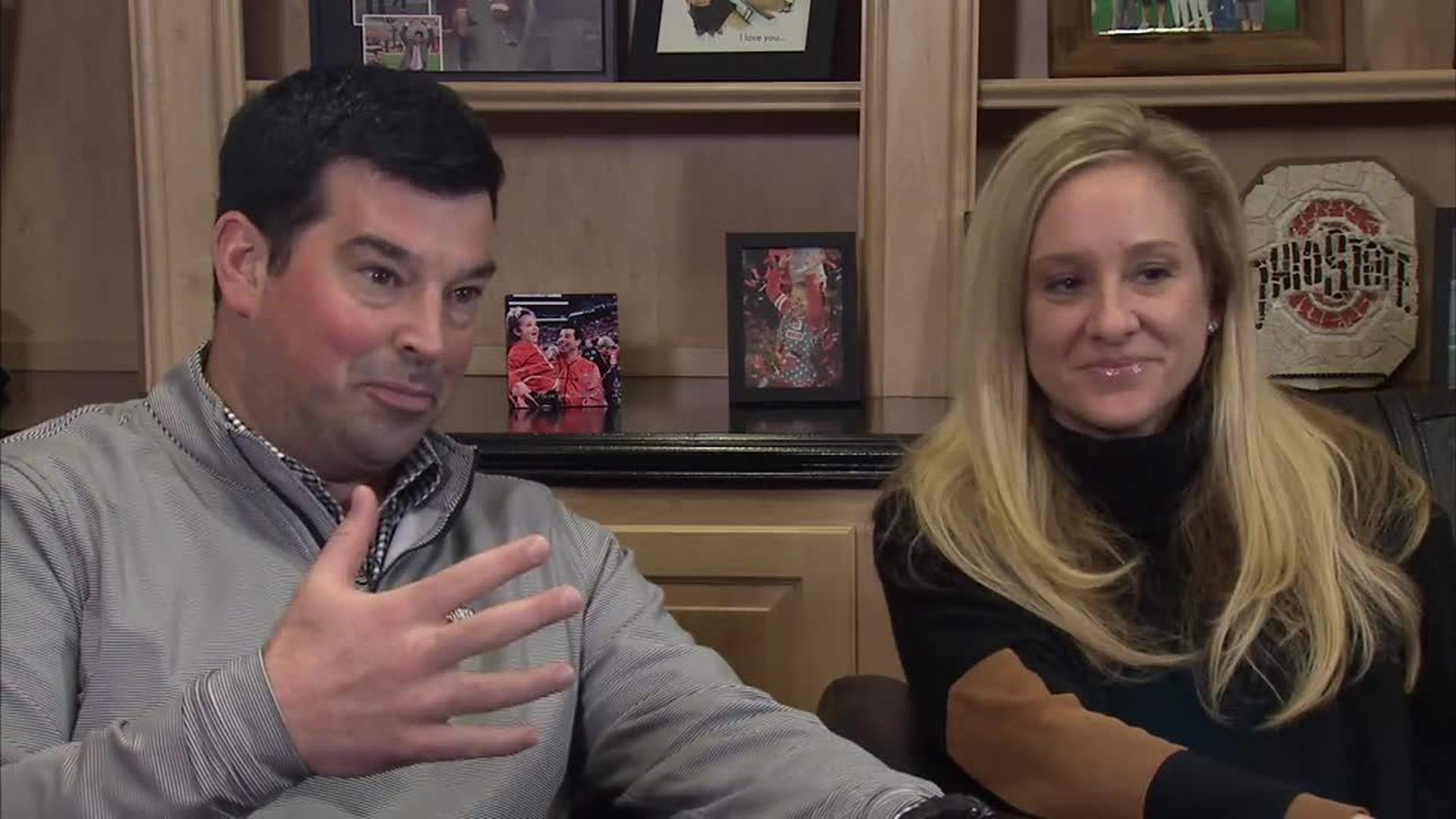Ryan Day discusses resilience and mental health.
Ryan Day, the Ohio State University head football coach, had an open discussion about mental health with students last week.
Students, faculty, staff, and therapy dogs from Buckeye Paws attended the event,
which was arranged by the Wellness Advocacy Student Organization at Ohio State.
Day highlighted the value of resilience throughout the conversation.
“We need to strengthen our resilience because there will be challenges in the future,” he stated. “The more you prepare for it, the more ready you will be.”
Day compared mental and physical health, stating that people may develop resilience and improve their mental well-being over time, just like they do their physical health.
Day talked about the connections between mental and physical health as well as how physical wellbeing plays a major role in mental wellness.
He mentioned tennis and being outside as two activities he utilizes to maintain and elevate his mood.
He also likes to unplug and spend time with his loved ones.
Day stated that having people in your life who will support you and be honest with you when necessary is vital for developing resilience.
In the face of hardship, he advised the audience to rely on the people who are closest to them.
He asserted, “A willingness to ask for help is a sign of strength.”
Day, who lost his father to suicide when he was nine years old, has a very personal connection to mental health issues.
He remarked, “It’s difficult to understand, especially when you’re young.”
As time has passed, I’ve come to understand and have learned how to tell my tale. It required a lot of time.
Day and his spouse, Nina, gave the university $1 million a year ago to establish the Nina and Ryan Day Resilience Fund, which provides funding for mental health services and research.
He expresses hope that in ten to twenty years, the risk factor leading to mental disease will be identified.
“Being a part of something so progressive is humbling.”
Day emphasized to the audience that talking about tough subjects makes them easier to handle, which is why he is such an outspoken supporter of lessening the stigma associated with mental health issues.
People “share a lot of the same experiences when you talk to them about it,” he said.
“That gives you some comfort.”
Day concurs that men, especially sportsmen, are more likely to be stigmatized for mental health issues.
Day calls this all-encompassing strategy for the team’s well-being the “circle of care,” which consists of tools like sports psychologists, cryogenic chambers, and an appropriate diet.
He talked about how crucial it is to establish an atmosphere where his players feel free to seek assistance and receive it.
“Life and football are both fights,” the saying goes.
Being the best version of yourself every day is a battle.

Leave a Reply